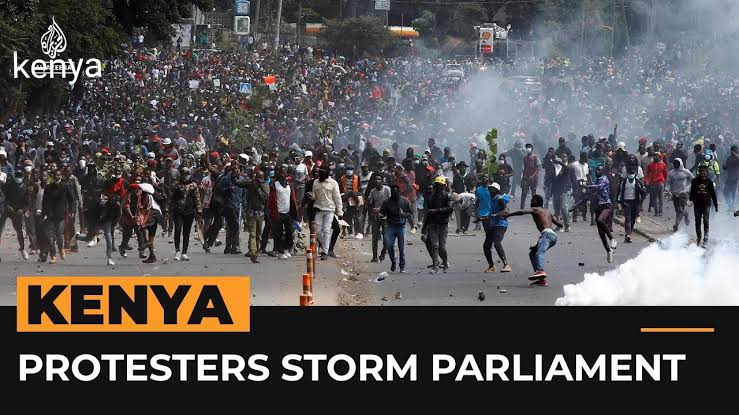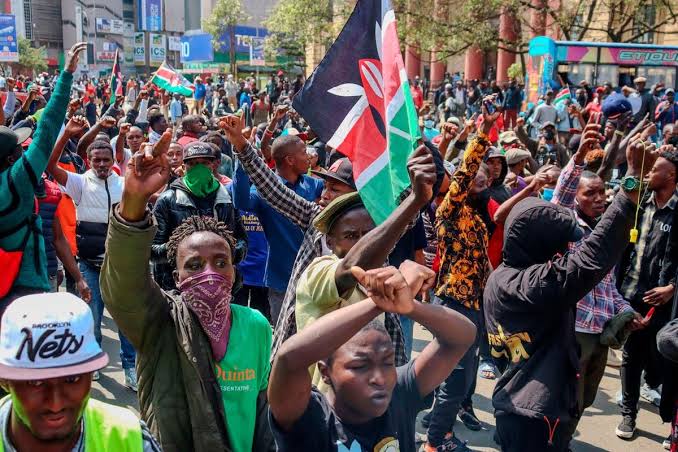
Russia, Uhuru, Ford Foundation, Gachagua: Who’s Really to Blame for Gen Z Protests?.


Kenyans have witnessed a game of blame-shifting among top government officials as they search for the true culprits behind the Gen Z protests that rocked the Kenya Kwanza administration. The storming of Parliament in June set off a scramble for answers, with key state actors unwilling to accept that these protests could have been spontaneous.
Fingers have pointed in many directions, but the buck seems to have stopped at the Deputy President’s doorstep.
“I hereby put on notice the planners, financiers, orchestrators, and abettors of violence and anarchy,” President Ruto declared on June 25, after protestors breached Parliament. The writing was on the wall: someone would be held accountable for the break-in at Parliament, the fire set to the capital’s county government seat, and the ransacking of the Supreme Court—events that culminated in the collapse of the Finance Act 2024.
“We shall provide a full, effective, and expeditious response to today’s treasonous event,” Ruto added.
But who is really to blame?
Just two days before Parliament was stormed, Government Spokesman Isaac Mwaura pointed a finger at foreign powers, suggesting that Russia or even the United States might have sponsored the protests in response to President Ruto’s global pronouncements. “Nikiangalia kwa umbali, could be there’s a foreign hand. Juzi Ruto amesema mambo ya Russian invasion. This issue of de-dollarisation…tujichunge sana,” Mwaura remarked.
Since then, the target has shifted several times. Abductions carried out by the police painted a picture of an administration groping in the dark, seeking anyone to blame. Intelligence reports pointed to six politicians, a businessman, and two NGOs who allegedly mobilized anarchists.
The former president, Uhuru Kenyatta, also became a suspect, with some of his close associates reportedly investigated as potential financiers of the chaos.
Next in the crosshairs was the Ford Foundation. President Ruto boldly accused the organization of funding violence, stating, “I want to call out those behind the anarchy in Kenya. Shame on them for sponsoring violence against our democratic nation. Ford Foundation, how is that money funding violence going to benefit you?”
This unfounded accusation led to further tension with civil society, even resulting in the targeting of Boniface Mwangi’s Sema Ukweli offices. However, the President seemed to reverse course when he met with Ford Foundation President Darren Walker at the United Nations General Assembly in New York, praising the organization for its commitment to safeguarding Kenya’s democracy.
Now, it seems the blame game has reached the doorstep of Deputy President Rigathi Gachagua, who predicted this months ago. “They want to blame me,” Gachagua said, deflecting responsibility back to the National Intelligence Service (NIS).
With Friday’s decision by the Director of Public Prosecutions (DPP) to adopt the Directorate of Criminal Investigations (DCI) recommendation to charge two sitting Members of Parliament and three others for the violence on June 25, the buck appears to have landed firmly on the Deputy President’s doorstep.
But as the accusations continue to shift, one can’t help but wonder—who will be blamed next?
Article By Suzy Nyongesa.
